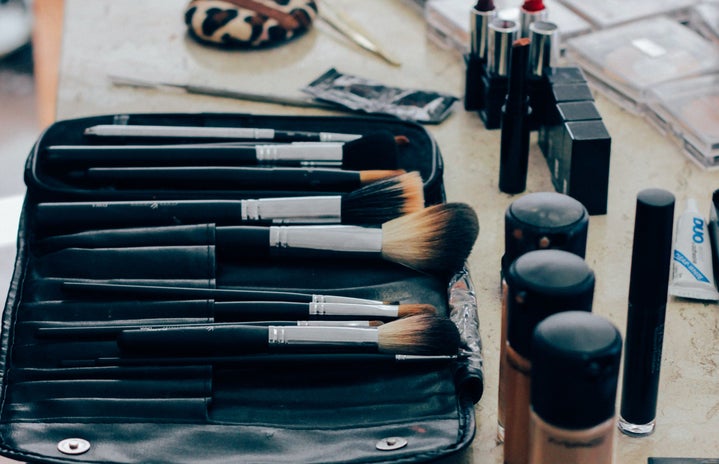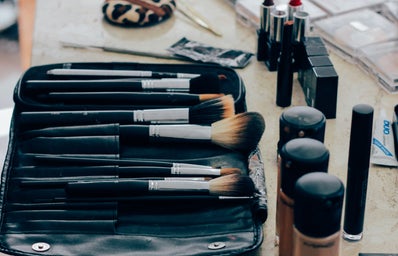Log into any social media site, and you’re bound to be bombarded with posts about 20-step-skincare routines and the latest do-it-all moisturizer. Scroll a little further, and you might see exclamations about how “moisturizer is the best primer” and reminders to take off your makeup before bed. And then, of course, there are the ubiquitous celebrity skincare routines that everyone just has to obsess over.
But what about sunscreen?
Source: The Klog
Sunscreen is arguably the most important product you can include in your skincare routine, yet it’s neglected from the conversation. Whether it’s a makeup artist working on a client or a celebrity showing off their daytime process of getting ready, these publicized routines are excluding their SPF. And no, SPF in your foundation doesn’t count. You need to apply a separate sunscreen after your moisturizer and before your primer.
The most bare-bones reason to apply sunscreen every day is skin cancer prevention. The sun’s UVA rays can easily penetrate into the deep layers of your skin, thus triggering damage to the DNA within your skin cells and eventual progression into skin cancer. Not fun! The easiest way to prevent this from happening is by protecting your skin, particularly your face, with a broad-spectrum sunscreen with an SPF rating of at least 50.
Source: Allure
If you’re here for a good time and not a long time, there are still reasons to wear sunscreen! Photodamage from UVA rays can lead to premature aging, hyperpigmentation (i.e. dark spots and splotchy skin), and more. No matter how many skincare products you use before heading out the door, none of it will matter once those UV rays blast straight through those creams and into your skin.
That pesky scar from last week’s whitehead? Will only get worse once the sun gets to it. Your laugh lines that you’ve been using that $60 Essence to get rid of? Just got deeper thanks to the sun. Your crow’s feet you bought that new eye cream to treat? They’re the whole crow now. Basically, building a skincare routine full of expensive products is pointless if you’re not going to protect your skin from the sun.
So what now?
Before you run out the door with a ski mask and buy the first sunscreen you see at CVS, let’s talk about what to look for when you’re shopping for one.
Source: Lasting Change Health
There are two broad categories of sunscreens: physical and chemical. The former uses mineral-based ingredients like titanium dioxide and zinc oxide to create a physical filter that deflects and scatters UV rays from the skin. These are less likely to irritate your skin and work immediately, but the caveat is that a lot of them don’t wear well under makeup and often have a white cast. On the other hand, chemical sunscreens are more cosmetically elegant and don’t have a white cast, but their filters take around twenty minutes to activate and can potentially irritate your skin.
These statements are only general guidelines, though, not the Word of God. As long as you read the ingredients list and are aware of what your skin does and doesn’t like, you should be able to find a sunscreen that works in either category. There are physical sunscreens with no white cast and chemical sunscreens that are great for sensitive skin; you just need to look for them!
As far as SPF ratings go, 50 and higher is ideal (30 to 40 is alright for limited time outside, though), and broad-spectrum is a must. Korean and Japanese sunscreens also come with a PA rating of one to four pluses, so if you’re shopping for one of those, make sure it’s at least PA+++. Also, a few more things: sunscreen should be reapplied every two hours because the filters don’t last all day, and SPF in your foundation doesn’t count because you’re never going to use nearly enough foundation to get the listed SPF.
Now that that’s out of the way, let’s delve into some recommendations (arranged in no specific order).
Krave Beauty: The Beet Shield SPF 50+ PA++++ (Chemical)
Source: Krave Beauty
La Roche-Posay: Anthelios 50 Ultra-Light Fluid SPF 50 (Physical)
Source: La Roche-Posay
Black Girl Sunscreen SPF 30 (Chemical)
Source: Black Girl Sunscreen
Yes, dark skin needs sun protection, too! Here’s a tried-and-true that won’t give you a white cast. Other recommendations for completely clear sunscreens are the Supergoop Unseen Sunscreen and the Glossier Invisible Shield.
Etude House: Sunprise Airy Finish SPF 50+ PA+++ (Physical)
Source: Etude House
Paula’s Choice: Super-Light Wrinkle Defense SPF 30 (Physical)
Source: Paula’s Choice
Biore UV Aqua Rich Watery Essence SPF 50+ PA++++ (Chemical)
Source: Amazon
ROHTO Skin Aqua Super Moisture Milk SPF 50+ PA++++ (Mix)
Source: Amazon
Even as we approach fall and winter, make sure you apply your sunscreen! The winter sun may start to hold back its sunburn-causing UVB rays, but the UVA rays will be as present as ever!
Want to keep up with HCBU? Make sure to like us on Facebook, follow us on Instagram, check out our Pinterest board, and read our latest Tweets!



